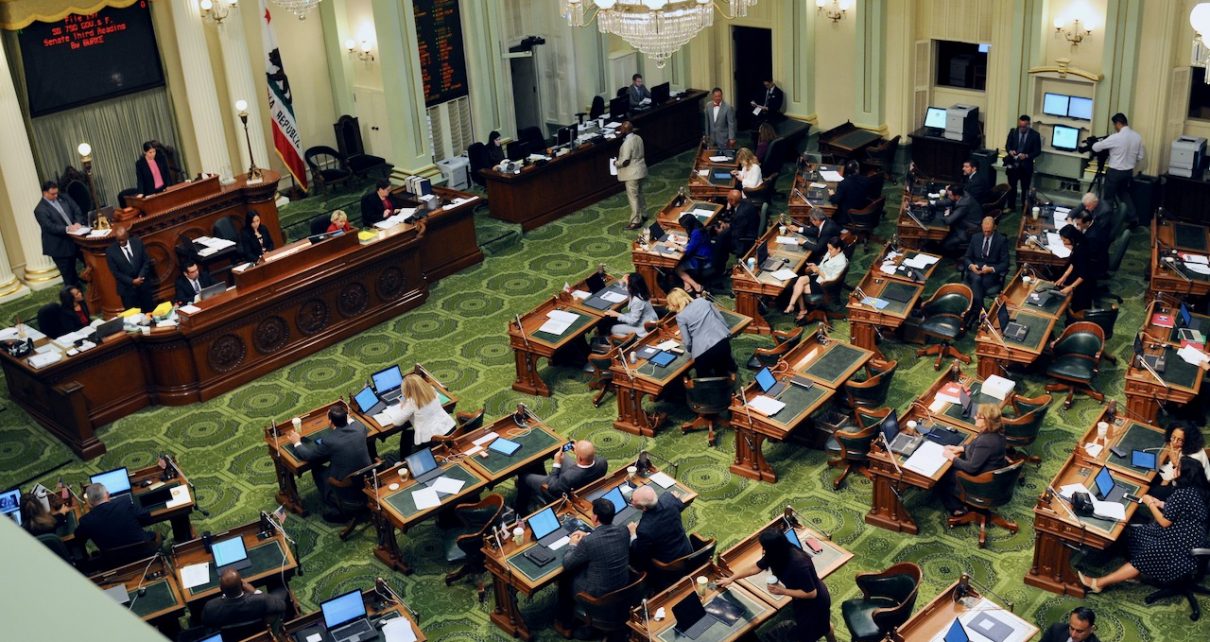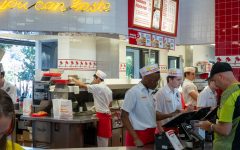
California State Assembly Chamber. (Photo: Kevin Sanders for California Globe)
What Are the New Exemptions in the Fast Food Council Law?
Restaurants operated in airports, hotels, large event centers, theme parks, museums, gambling establishments, corporate campuses, and certain public lands
By Chris Micheli, March 21, 2024 2:00 pm
Assembly Bill 610 is pending on Governor Newsom’s desk. The bill would exempt several types of restaurants from last year’s landmark bill creating a Fast Food Council and increasing the minimum wage for fast food workers to $20 per hour on April 1.
Section 1 of the bill contains three legislative findings and declarations, including that the “goals of the Fast Food Council … will be furthered by clarifying the scope of fast food restaurants and fast food restaurant workers covered by its terms.” Also, “restaurants that are operated in conjunction with larger enterprises such as airports, hotels, large event centers, theme parks, museums, gambling establishments, corporate campuses, and certain public lands, generally do not share the same characteristics as traditional fast food restaurants that are part of national fast food chains, because restaurants operated in conjunction with larger enterprises have distinct economics and a captive customer base, are often operated subject to concession or food service contracts, and have different employment structures.”
Section 2 of the bill amends Labor Code Section 1474 to move the exemption for certain bakeries to a new subdivision, and creates the following exemptions to exclude certain restaurants from the definition of “fast food restaurant”:
(1) Located in an airport.
(2) Connected to or operated in conjunction with a hotel.
(3) Connected to or operated in conjunction with an event center, which is generally a publicly or privately owned structure of more than 20,000 square feet or 1,000 seats that is used for the purposes of public performances, sporting events, business meetings, or similar events, and includes concert halls, stadiums, sports arenas, racetracks, coliseums, and convention centers.
(4) Connected to or operated in conjunction with a theme park.
(5) Connected to or operated in conjunction with a public or private museum.
(6) Connected to or operated in conjunction with a gambling establishment.
(7) A restaurant that is all of the following:
(A) Located in and operated in conjunction with a building, group of buildings, or campus used for office purposes primarily or exclusively by a single, for-profit corporation and its affiliates.
(B) Primarily or exclusively serves employees of that corporation or its affiliates rather than the general public.
(C) Is part of, or subject to, a concession or food service contract covering the building, group of buildings, or campus.
(8) Located on land owned by the state, a city or county, or other political subdivision of the state, that is part of a port district or land managed by a port authority or port commission, a public beach, public pier, state park, municipal or regional park, or historic district, and is operated pursuant to a concession agreement or food service contract.
Section 3 contain an urgency clause so that the bill takes effect immediately upon the Governor’s signature, which is expected prior to April 1. The stated need for the urgency is “Due to how the immediate operation of new regulation of the fast food industry in California affects portions of the industry and existing local ordinances and pending regulatory and ballot measures, it is necessary for this statute to take effect immediately.”
- Legislative Intent Does Not Equate to a Mandate - April 27, 2024
- Frequently Asked Questions about State Agency Ethics Training - April 26, 2024
- Frequently Asked Questions about When Elected Officials Take Office - April 25, 2024



Hey Newsom – SUCK on THIS!!!
https://www.dailynews.com/2024/03/21/in-n-out-burgers-restaurant-closure-called-the-chains-first-looms-this-weekend
Congratulations on KILLING an iconic California business with your lax crime policies!!!